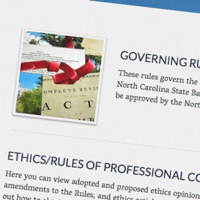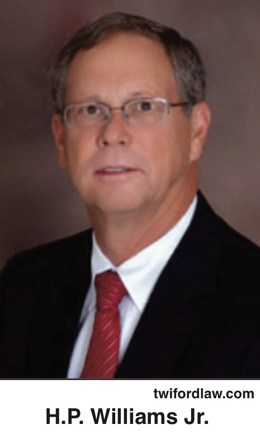Rascals case in brief
In the beginning, in 1989, more than 90 children at the Little Rascals Day Care Center in Edenton, North Carolina, accused a total of 20 adults with 429 instances of sexual abuse over a three-year period. It may have all begun with one parent’s complaint about punishment given her child.
Among the alleged perpetrators: the sheriff and mayor. But prosecutors would charge only Robin Byrum, Darlene Harris, Elizabeth “Betsy” Kelly, Robert “Bob” Kelly, Willard Scott Privott, Shelley Stone and Dawn Wilson – the Edenton 7.
Along with sodomy and beatings, allegations included a baby killed with a handgun, a child being hung upside down from a tree and being set on fire and countless other fantastic incidents involving spaceships, hot air balloons, pirate ships and trained sharks.
By the time prosecutors dropped the last charges in 1997, Little Rascals had become North Carolina’s longest and most costly criminal trial. Prosecutors kept defendants jailed in hopes at least one would turn against their supposed co-conspirators. Remarkably, none did. Another shameful record: Five defendants had to wait longer to face their accusers in court than anyone else in North Carolina history.
Between 1991 and 1997, Ofra Bikel produced three extraordinary episodes on the Little Rascals case for the PBS series “Frontline.” Although “Innocence Lost” did not deter prosecutors, it exposed their tactics and fostered nationwide skepticism and dismay.
With each passing year, the absurdity of the Little Rascals charges has become more obvious. But no admission of error has ever come from prosecutors, police, interviewers or parents. This site is devoted to the issues raised by this case.
On Facebook
Click for earlier Facebook posts archived on this site
Click to go to
Today’s random selection from the Little Rascals Day Care archives….
Click for earlier Facebook posts archived on this site
Click to go to
Today’s random selection from the Little Rascals Day Care archives….
Ever so slowly, progress made toward DAs’ accountability

ncbar.gov
July 1, 2016
“Prosecutors should have to disclose evidence of innocence obtained after a person is convicted, a North Carolina State Bar panel agreed Wednesday.
“The ethics subcommittee voted 3-2 at a meeting in Greensboro to support the general principle that a prosecutor’s duty to disclose innocence evidence continues after a defendant is sentenced, although the members didn’t settle on specific language. A federal prosecutor and a former district attorney opposed the motion, while three attorneys in private practice supported it….
“The North Carolina Conference of District Attorneys had said in a letter to the State Bar that prosecutors say that the rule is unnecessary….
“The panel is just the first step in a lengthy process that – if the rule is approved at each step – involves the full ethics committee, public comment, the full State Bar Council and finally, the state Supreme Court.”
– From “NC panel: Innocence evidence right continues after sentence” by Martha Waggoner of the Associated Press (June 29)
Read more here.
![]()
Courts reluctantly turn to Little Rascals DA
 May 27, 2014
May 27, 2014
“The state court system says it hired a local defense attorney to prosecute three murder suspects because the current district attorney had conflicts of interest in all three cases and no other prosecutors were available.
“The N.C. Administrative Office of the Courts hired H. P. Williams Jr. as a special prosecutor on March 27 after attempts to find a prosecutor from either the state Attorney General’s Office or another district attorney’s office failed….”
– From “Williams to prosecute 2 more murder cases” by William F. West in The (paywalled) Daily Advance (May 24)
Yes, that’s the same H.P. Williams Jr. who as district attorney prosecuted the Edenton Seven, who as an ostensible expert appeared at conferences on “satanic ritual abuse” alongside “cult cop” Robert J. Simandl and Civia Tamarkin of Believe the Children, who as a candidate for reelection received only 41 percent of the vote and who after returning to private practice emphatically declined to discuss the Little Rascals case.
Yes, that H.P. Williams Jr….
Oh, for the ability to recognize something ‘odd’
 June 25, 2012
June 25, 2012
“I saw this woman in her 20s … accused of something like 2,800 charges of child sex abuse. Oh, I thought, well, that’s very odd….
“I thought, How can (Kelly Michaels) one woman, one young, lone woman in an absolutely open place like the child care center of the church in New Jersey that she worked for – how could she have committed these enormous crimes against 20 children, dressed and undressed them and sent – you know what it is to dress and undress even one child every day without getting their socks lost? – 20 children in a perfectly public place, torture them for two years, frighten and terrorize them, and they never went home and told their parents anything?… This did seem strange.”
– Dorothy Rabinowitz, recalling on C-SPAN the 1985 case that led to her Pulitzer-winning coverage of the ritual-abuse day-care mania
“This did seem strange.”
From the vantage of 2012, of course, such allegations seem not only “strange” but also patently incredible.
So why didn’t everybody – therapists, journalists, prosecutors, jurors – share Rabinowitz’s reasonable doubt?
How did such a grotesque misconception flourish?
Had skepticism really fallen that far out of fashion during the “Believe the Children” zeitgeist?
Prosecutors have upper hand in plea bargains
May 9, 2012
“A Question of Innocence: A True Story of False Accusation” by Lawrence D. Spiegel was published in 1986, but this passage – lamenting plea-bargains by those falsely accused of assaulting children – applies exactly to Little Rascals:
“The innocent often fall prey to the waiting hands of the prosecutor and plead guilty to a lesser charge, just to put an end to the ordeal and to the separation from a child.
“Prosecutors, as a result of over-zealousness to protect the child, blind ambition to further a career or a number of other reasons, will do ‘strange’ things for a conviction. It is always to the prosecutor’s benefit to get a guilty plea, even to a lesser charge. Sometimes the prosecutor will wait until the accused is emotionally and financially drained, then the plea bargain offer is made….
“Some falsely accused are so battered and beaten, they accept the humiliation and anger and take the deal. Often this occurs with the consent of the victim’s attorney…. The stigma of the bargain will remain forever.”











0 CommentsComment on Facebook